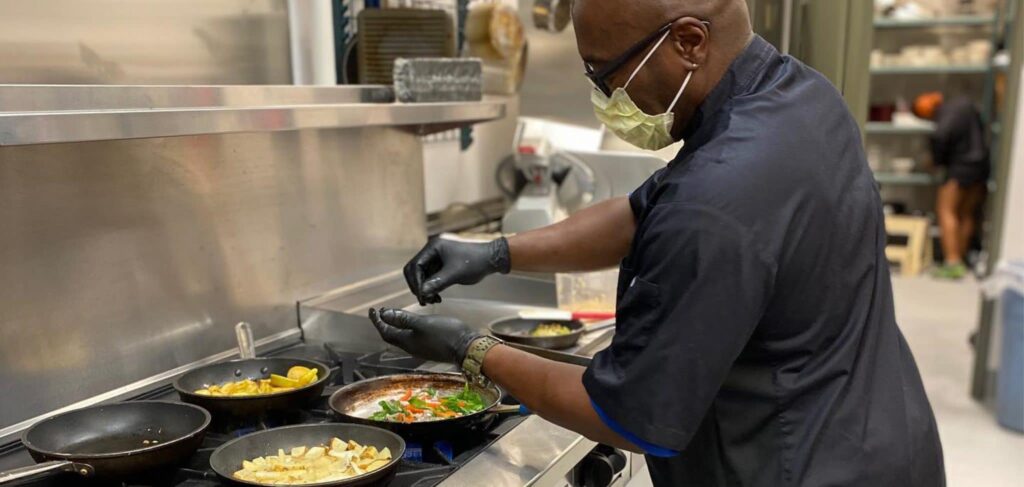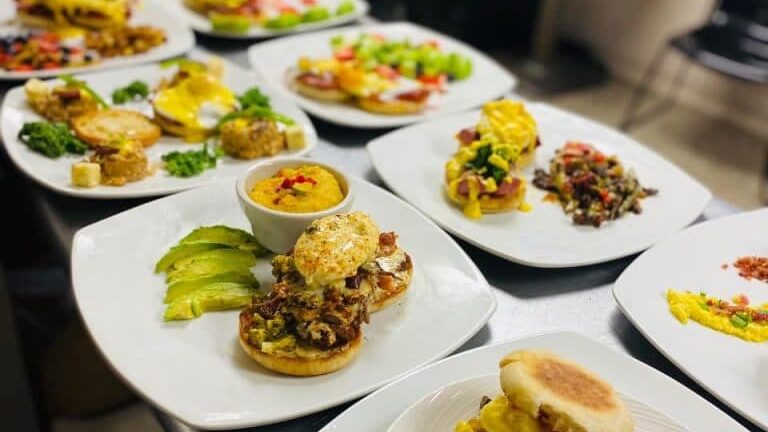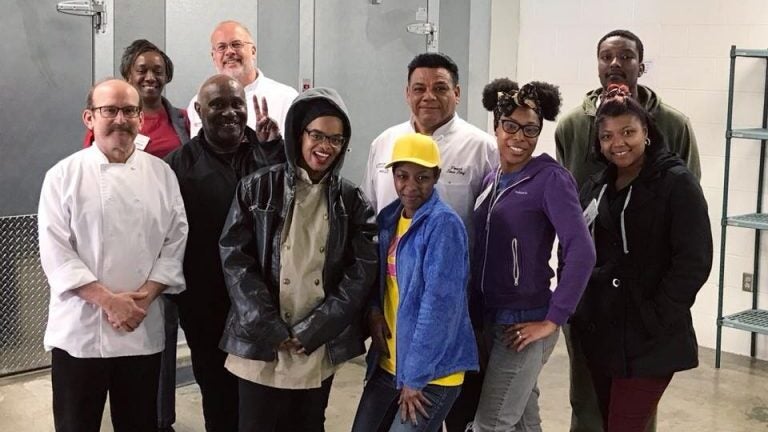
Growing jobs through social enterprises

By By Susan Smith, Communications and Grants Coordinator, Catholic Charities of Louisville
Staff at Catholic Charities of Louisville like to tell people that during the pandemic their services never lapsed. For example, the Sister Visitor Center didn’t miss one day of providing food and emergency financial assistance to people in Louisville’s poorest neighborhoods and the Language Services program had already begun exploring remote models for interpreting.
Two other programs aimed at job training were in danger of being shut down just when they were needed most: a catering enterprise and a year-round series of six-week soup and bread subscriptions. The revenue from these efforts pay for Catholic Charities’ culinary job training program called Common Table.
Common Table develops employable skills in those who face employment barriers, such as lack of opportunity, no training and even criminal records. In an eight-week program, students become certified as a safe food manager after learning restaurant skills and gaining real-life experience. Students prepare meals for Common Table’s two social enterprises, and they work with chefs in the Dare to Care commercial community kitchen. Dare to Care is a Feeding America regional food pantry that partners with other pantries and uses innovative strategies to address hunger in metro Louisville.
According to Common Table director Laura Stevens, the program was about halfway through one session when classes stopped in late March due to COVID-19. “We threw out any food that would expire in the next two weeks, thinking that was as long as we would be quarantined,” she said with a laugh. “Students didn’t return for 14 weeks.”

When classes stopped, Common Table staff rallied with the receipt of pandemic relief funds from the metro government and used the money to assemble food boxes for La Casita, a local nonprofit that works with the Latinx community. According to Stevens, they provided 400 boxes that fed at least 1,600 people.
In addition, staff continued a monthly free meal, Table of Plenty, provided in collaboration with Saint Agnes and Good Shepherd Catholic churches, which are located in an impoverished area of Louisville. “With so much of the city shut down and with shortages in the grocery stores, we knew there was a need,” Stevens said, “and we knew we needed to meet it.” They pivoted from a sit-down hot meal to a hot meal to-go distributed outside of a gym that usually accommodated 350 diners. “We served 250 meals in March and 217 in April. Our community meals since then total more than 9,000 and we’re still counting.”
Stevens, however, knew that they needed to get the Common Table students back into the program as well, not only for the students’ sake but also for those depending on them.

The Dare to Care kitchen needed help from the Common Table students in order to support the Kids Café, which is part of the Child and Adult Care Food Program. During the pandemic, the program provided thousands of meals to children who normally received their best meals at school but were quarantined at home. Dare to Care depended on Common Table’s students to help prepare and assemble the meals.
The students wanted to return to class, Stevens said: “We knew we needed to create a safe environment where they could continue to work toward their goals.” The numbers were low, however, because many had to take care of their children at home. The students who returned did double duty by helping Dare to Care and getting Common Table’s catering enterprise and subscription series operational again.
The catering business almost shut down during the pandemic because most users—local businesses—weren’t open. Catering quickly pivoted from full-service to box lunches but did very little business.
The six-week homemade soup and artisan bread subscriptions, however, proved to be a great fit during the pandemic and saw customer engagement greatly increase during winter 2020, sometimes running at capacity. “Maybe it was because access to restaurants was limited, or maybe it was because people were just tired of cooking, but they seemed to really enjoy placing their orders online and picking them up at drop-offs around the city,” Stevens said.
We’re hoping to build on this growth and have the subscriptions be our main source of revenue for Common Table.
Job placement through Common Table was majorly impacted. The program had experienced an 81% placement rate in top-quality establishments for its graduates, but the pandemic shut many of those businesses down. Before the pandemic, most students opted to work at the Omni Hotel, which offered an apprenticeship program. Omni, however, shuttered operations in March 2020 and didn’t begin rehiring until almost a year later. Stevens had to develop new employee partners, focusing on institutions such as Aramark, the food service provider for the University of Louisville.
Now, Common Table participants have even more options upon graduating. Classes are running at pre-pandemic levels and the soup subscription has been expanded over the summer to include seasonal salads.
Pandemic conditions challenged the local business landscape and its supporting organizations, but Stevens noted that Catholic Charities pivoted well and persevered. “We’ve all realized we can do more than we thought we could and we can adapt approaches we didn’t want to try,” she said. “And we’re better off for it.”








